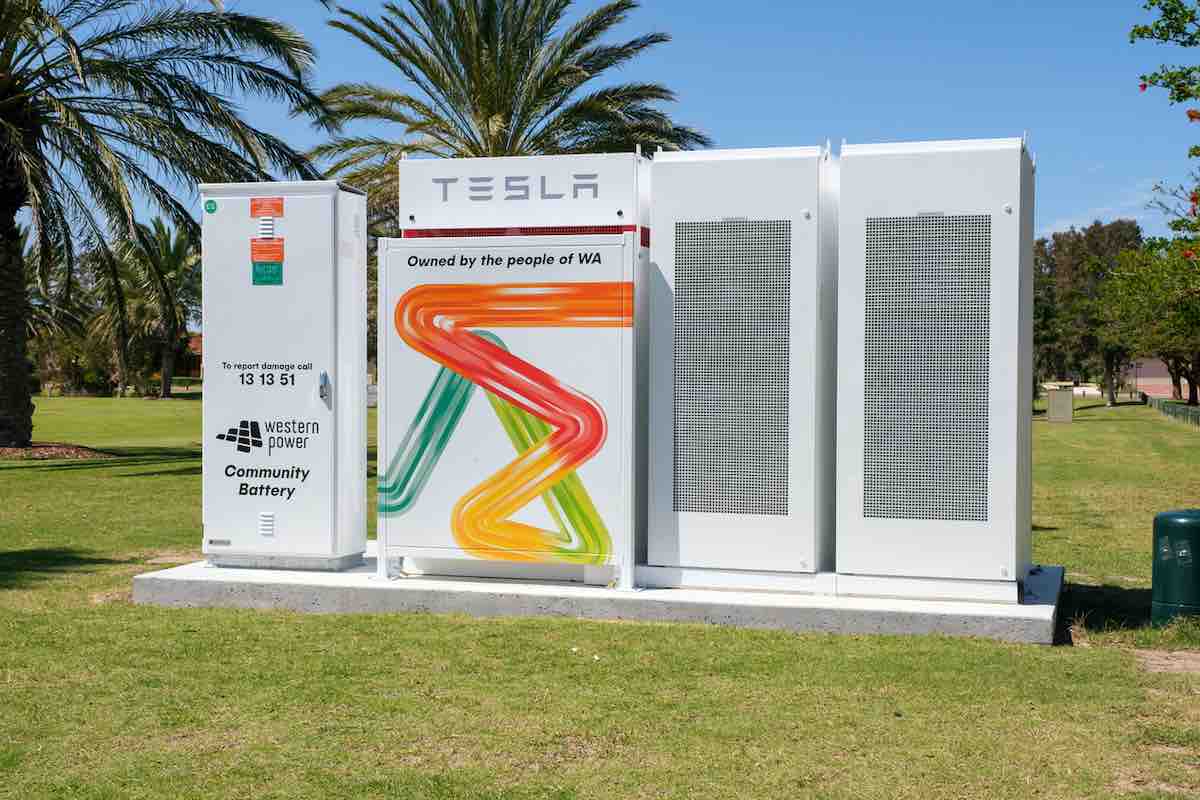

Western Australia has announced its third and biggest-yet community battery trial, offering up to 600 solar households access to shared or “virtual” energy storage while at the same time boosting the efficiency and stability of the state’s South West grid, or SWIS.
The new 18-month trial expands on the highly successful first and second rounds of the state’s PowerBank scheme, in which government-owned utilities Synergy and Western Power installed half-a-dozen Tesla batteries across a range of communities, including Meadow Springs, Kalgoorlie, and Busselton.
(As One Step noted last year, Western Power had actually installed a total 13 utility-grade community batteries on its network ahead of PowerBank 3, but only six of those were trialing the PowerBank community storage product with Western Power and Synergy.)
The utilities said on Wednesday that PowerBank 3 would kick off next month, following the successful installation of nine 116kW community batteries across Perth and the South West late last year. One of the batteries, in Vasse, is the first community battery for the region.
Like PowerBank 1 and 2, PowerBank 3 will allow household participants to store their excess rooftop solar energy (up to 6kWh or 8kWh) for use when the sun goes down, for a subscription priced at $1.20 per day for 6kWh or $1.40 per day for 8kWh.
The new trial will differ from the previous two, however, in that it will offer customers the option to accrue excess energy over the course of their billing cycle, providing greater opportunity to offset peak energy consumption.
For the government-owned retailer, Synergy, PowerBank 3 is expected to provide invaluable learnings about the role batteries can play in the future energy market, while also meeting the needs of individual households, as the broader electricity network.
“Renewable and distributed energy resources such as battery storage are major parts of Western Australia’s energy future, and we are committed to the continued exploration of these technologies,” said Synergy chief Jason Waters.
“Directly partnering with customers and industry peers, including Western Power, is key to delivering solutions that are cost-effective for our community and sustainable for ongoing network stability.”
For network company Western Power, community batteries are seen as one of a number of technologies it will use to better manage the “growing abundance” of renewables and improve the efficiency of the grid, a sprawling network that supplies most of the state’s population.
“From a grid perspective, community batteries enable us to work with the community to soak up excess solar power, store it and re-use it later when solar generation drops but power need increases,” said Western Power chief Ed Kalajzic.
“It becomes a tool that helps us smooth the flow of renewables on the grid. It also means we can safely integrate more solar-generated electricity on the grid, which is great news for homeowners and businesses,” he said.
“Community batteries are an excellent example of what we’re aiming to achieve for the benefit of the whole community and we now have the insights and data to expand on this further.”
The companies said that participants in the new trial would move to a time-of-use pricing plan with any unused solar energy sold back to Synergy at the Renewable Energy Buyback Scheme rate and credited to their account.
The PowerBank 3 community batteries have been installed in Ellenbrook, Kalgoorlie, Ashby, Canning Vale, Two Rocks, Vasse, Port Kennedy, Yokine, and Parmelia.

Sophie is editor of One Step Off The Grid and editor of its sister site, Renew Economy. Sophie has been writing about clean energy for more than a decade.
